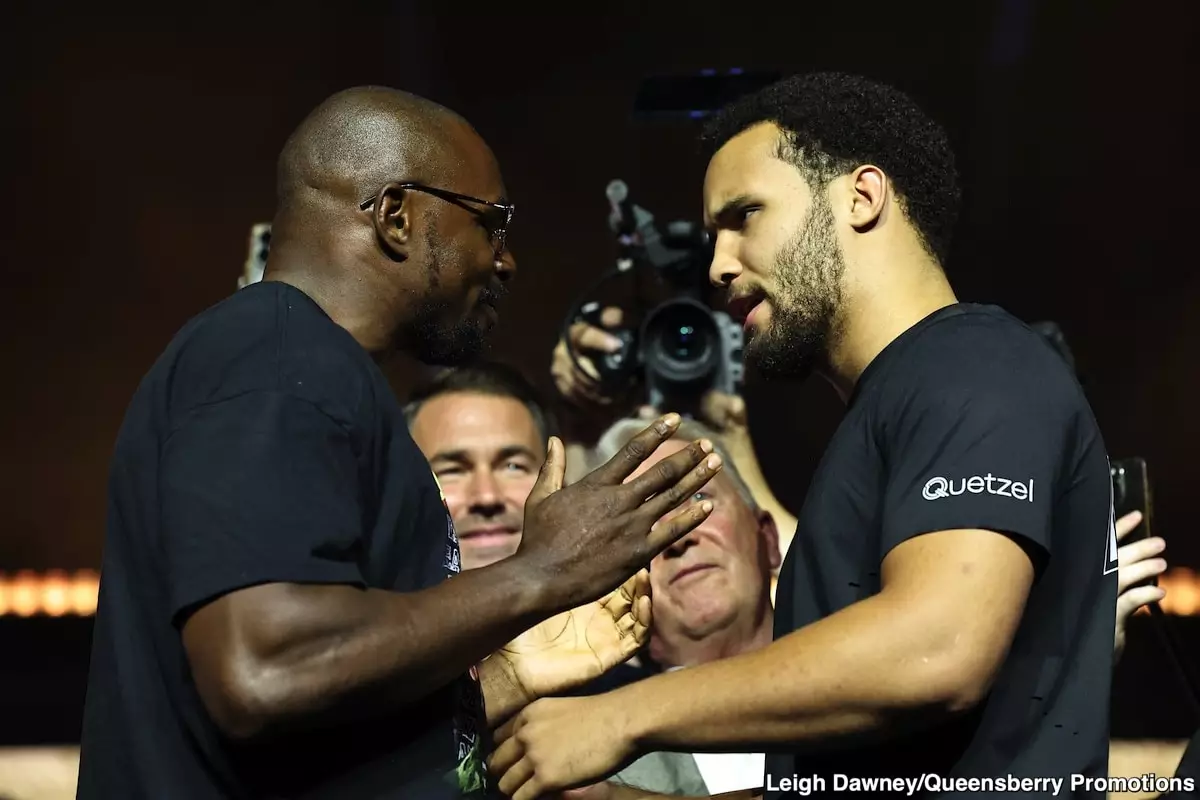In the world of heavyweight boxing, expectations often sway heavily towards youth, agility, and raw power. However, seasoned fighters like Derek Chisora serve as a powerful reminder that experience, grit, and strategic adaptability can defy typical assumptions. As Chisora shadows the upcoming heavyweight showdown between Moses Itauma and Dillian Whyte, he offers insights that challenge the conventional wisdom surrounding age and potential. Chisora’s evolving perspective underscores a critical truth: in boxing, the margin between victory and defeat is often razor-thin, hinging on resilience and mental fortitude rather than mere physical attributes.
Chisora’s initial prediction favored the explosive knockout potential of the young and promising Itauma. Yet, recent observations of Whyte’s physical conditioning have prompted a reassessment. The once-dismissed veteran, once sidelined as past his prime, appears to have refocused and re-engaged with a renewed vigor. His transformation highlights one of boxing’s enduring lessons: that at any age, a fighter with strategic intelligence and unwavering determination can disrupt predictions and upset expectations. The narrative that maturation equals decline is challenged when a veteran like Whyte shows he can still craft a compelling performance—if not a victory.
Age and Reality: Does Experience Outweigh Youth?
The core question facing boxing fans and analysts alike is whether Dillian Whyte, at 37, can leverage not only his experience but also his recent physical improvements to topple the potentially unstoppable Moses Itauma. Critics often dismiss older fighters, asserting that declining reflexes and stamina make victory unrealistic. Yet, What Chisora’s observations reveal is that readiness and mindset can defy these age stereotypes. Whyte’s recent physique, described as “beautiful” and “incredible,” suggests that motivation and serious preparation can rejuvenate a fighter long past their initial prime.
Furthermore, Whyte’s previous losses to Itauma—thus far—have cast him as underdog. But boxing history is dotted with veteran fighters who, at pivotal moments, harnessed their ring intelligence and experience to produce upsets. Will Whyte’s advantage lie in his grit, ring craft, and ability to absorb and adapt under pressure? Such qualities are often underrated in the age of spectacle-focused fights but remain crucial at the heavyweight level. The upcoming fight symbolizes a test of whether these intangible assets are enough to overcome youthful vigor.
A Potential Final Chapter or a New Beginning?
Chisora’s comments also open the door to speculation about this fight being a potential swan song, especially if Whyte succeeds. For the veteran, a victory would cement his legacy and possibly invite a third bout with Chisora himself. Such a trilogy is not mere nostalgia; it’s a testament to the enduring appeal of fighters whose careers transcend age, emphasizing that boxing remains a game of heart, strategy, and perseverance.
Chisora’s openness to rematch Whyte if he wins illustrates a fascinating narrative of mutual respect and unfinished business. More than that, it signifies that for fighters like Chisora, boxing is not just about titles but about enduring passion and the pursuit of memorable battles. Whether this fight marks the twilight of Chisora’s career or a stepping stone to one last hurrah, it underscores the unpredictable, deeply human element of the sport—where the resilience of experience can challenge even the most modern dynamo.


Leave a Reply